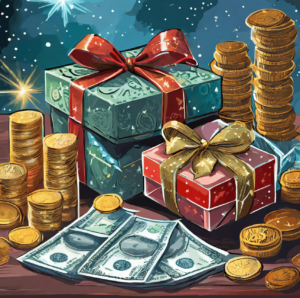Happy Tuesday. New ground has been broken at Davos, as over 300 companies pledge to unearth their impacts on the natural world.
In today’s edition:
⚡️ The London Metal Exchange plans to suspend 10% of listed metal brands
🚜 Deforestation in Brazil’s Cerrado biome increased by 43% last year
🌳 300+ companies announce plans to report their impacts on biodiversity
🔋 Energy (1-Min Read)
LME’s responsible sourcing shuffle
What happened: The London Metal Exchange (LME), the world’s largest and oldest metals trading venue, plans to suspend or delist 10% of its listed metals brands in the coming months until their producers provide responsible sourcing reports.
Details: The move is a step in the campaign launched in 2019 seeking to clean up global trade chains from metal tainted by child labour, corruption or conflict financing. Producers must submit reports demonstrating the implementation of the guidelines set by the OECD for responsible supply chains. These include having systems to identify and address responsible sourcing risks and third-party audits of these due diligence systems.
Why it matters: Demand for certain critical minerals is expected to skyrocket, driven, in part, by net-zero technologies. Copper demand will be 2x by 2050, and demand for Lithium will be 15x, according to some forecasts. Governance of this nature is critical to ensure corners aren’t cut to meet demand. (Full story here).
🚜 AgriTech (1-Min Read)
Brazil’s Green Dilemma: Amazon Success, Cerrado Setback
What happened: Deforestation in Brazil’s Cerrado biome, a tropical savannah spreading across 25% of the country, increased by 43% last year – driven partly by expanding agriculture and overshadowing success in reducing deforestation in the Amazon rainforest.
Details: The Cerrado covers nearly 25% of Brazil, stores large amounts of carbon, helps provide a buffer against climate change, and operates as a giant basin to collect and distribute water across the continent. Soybean and cotton farming are highlighted as taking advantage of the lesser regulations in the Cerrado and driving deforestation, where landowners must preserve only 20% of vegetation, unlike the Amazon, where 80% preservation is required.
Why it matters: These clearances of the Cerrado pose a risk to the goal set by Brazilian President Lula of zero deforestation in Brazil by 2030. At the same time, the agricultural sector is risking its future by replacing Cerrado’s vegetation with cropland, which undermines the natural water cycling of the region — leading to reduced rainfall and imperilling future harvests. (Full story here).
🐘 Nature (1-Min Read)
Over 300 organisations commit to disclosing nature risks under TNFD
What happened: Last week at Davos, more than 300 companies and financial institutions announced plans to report on their impacts on the natural world as part of efforts to stem the collapse of global biodiversity.
Details: The disclosures, created by the G20-backed Taskforce on Nature-related Financial Disclosures, will see the groups share much more information about the risks and opportunities posed by their interaction with the natural world as part of their annual reports by 2025. This first cohort of adopters includes leading publicly listed companies representing US$4 trillion in market capitalisation and over 100 financial institutions, including some of the world’s largest asset owners and managers, representing US$14 trillion in Assets under Management (AUM).
Why it matters: If TNFD can reach the same level of acceptance as TCFD, it will put nature ”on the map” with company boards and add nuance to a sustainability conversation which is too often reduced to just carbon emissions. (Full story here).
💭 Little Bytes (1-Min Read)
💬 Quote: “We have above-average snow in Davos, but if you go 12km lower down, you have below-average [snow coverage]. It shows how vulnerable the snowpack is to temperature [rise].” — Davos-based climate scientist Christoph Marty
📊 Stat: Americans throw 76% of their recyclables into the trash — The Recycling Partnership
📺️ Watch: AI discovers a new material that could cut lithium in batteries by 70%
🛗 Snippets for your lift conversations (1-Min Read)
India and the United States have agreed to bolster trade ties and deepen cooperation in areas such as critical minerals. (Full story here).
Too Good To Go, an app that offers consumers cheap “surprise bags” of unsold food, is launching a new tool to help supermarkets discount expiring items. (Full story here).
Exxon Mobil Corp. filed a lawsuit against US and Dutch climate activist investors to remove what it describes as their “extreme agenda” from the ballot at its annual shareholder meetings (Full story here).
The United Arab Emirates will boost spending by more than 50% on energy projects that limit or mitigate carbon dioxide emissions as Abu Dhabi’s government-owned oil producer, Adnoc, targets international expansion. (Full story here).
Jonathan Price, chief executive of Teck Resources, one of Canada’s largest mining groups, said government and local opposition to mines for copper, lithium and iron ore will grow unless the industry improves its record. (Full story here)
🎣 Gone Phishing (1-Minute Read)
Three of these stories are true, one we’ve made up. Guess which:
DPD error caused a chatbot to swear at a customer
World’s first robot comedian leaves audience in tears, literally
A dog with six legs has an operation to remove extra limbs
Chinese marathon runner disqualified for chain-smoking through entire race




